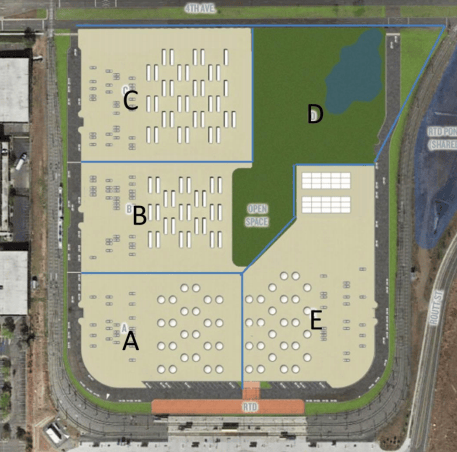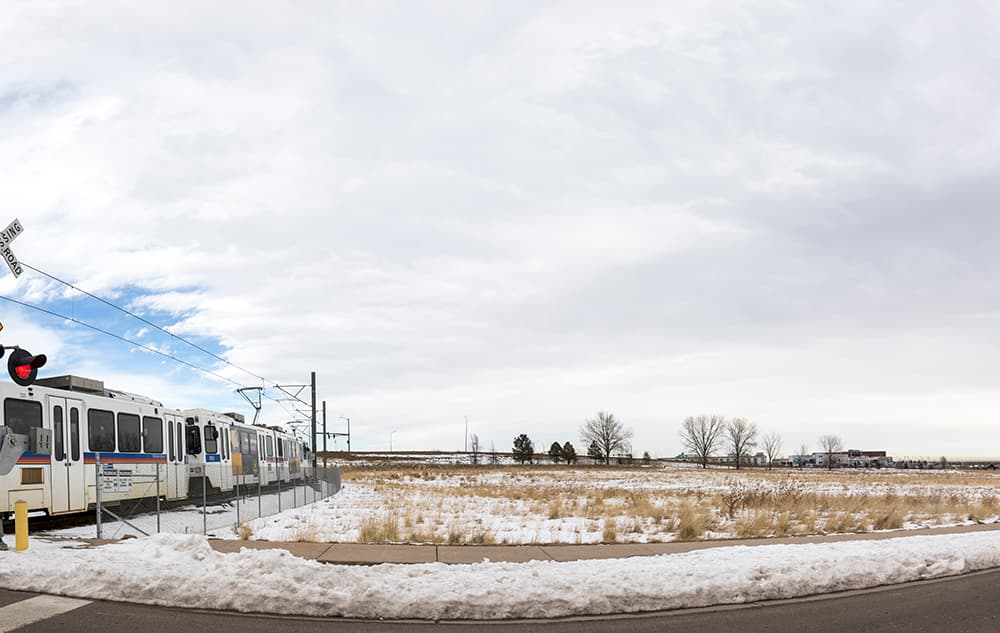A federal judge has refused to stop the federal government from selling 59 acres of land for development near Federal Center Station in Lakewood.
The new decision is a setback for the Colorado Coalition for the Homeless, which wants to use the land for housing services.
Here's the backstory.
Previously, it seemed like CCH would be allowed to build its new campus on the site. The group wants to build temporary housing on the site, followed by 600 permanent, supportive homes for people exiting homelessness.
The nonprofit had argued that the federal government must make the land available for homeless services, for free, under federal law. After filing an earlier lawsuit, CCH managed to stop the sale of the land to developers.
But that plan fell apart earlier this year, when the federal government declared that the nonprofit hadn't provided enough detail in an application for the project. Basically, the feds said CCH hadn't proved it could come up with the money.
CCH leadership said they were treated unfairly, and sued again to reverse the decision.
What does the new decision mean?
The nonprofit had asked a federal court to temporarily stop the sale of the land. On Monday, federal judge William J. Martinez refused to do that.
He declined to issue a temporary injunction, saying that CCH hadn't shown that it was likely to win the larger court battle.
The lawsuit can still continue, but in the meantime the federal government is proceeding with its auction of the land. So far, no one has bid -- but the starting price is $6 million. The auction ends on July 17.
Colorado Coalition for the Homeless is analyzing its next move and deciding whether it can still win the case, according to spokesperson Cathy Alderman.
"The real losers in this case are the homeless families and individuals in Lakewood and Jefferson County who remain without adequate housing and services, and who will not have this resource available to respond to their needs," she wrote in an email.
The plan for the campus had drawn opposition from nearby residents and from Lakewood's mayor.

What exactly did the judge say?
CCH essentially argued that the feds had "arbitrarily and capriciously" nitpicked their application.
For example, the feds said that CCH didn't detail how it would pay for trash service. The nonprofit says it was a simple oversight, one they would have corrected if given the chance. (The feds also cast doubt on whether CCH could land some of the millions in financing that they expected.)
Martinez showed some empathy, but he found that CCH hadn't sufficiently proved legal wrongdoing.
"To the extent the Coalition argues that HHS should have reached out anyway, the Court agrees from a perspective of simple civility, and is dismayed by HHS’s refusal to do so," he wrote. "But the Court is extremely constrained in its ability to overturn agency action ..."
The nonprofit also pointed to a case in San Francisco, where the feds approved a similar application even though it wasn't fully funded. But Martinez found they hadn't fully proved the comparison.















